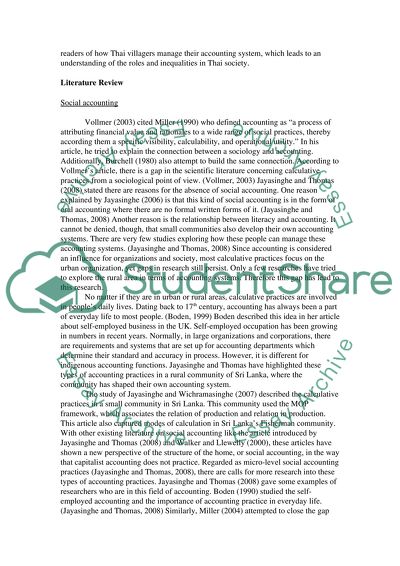Cite this document
(“Social Accounting Practices Essay Example | Topics and Well Written Essays - 2000 words”, n.d.)
Retrieved from https://studentshare.org/literature/1423813-social-accounting-practices
Retrieved from https://studentshare.org/literature/1423813-social-accounting-practices
(Social Accounting Practices Essay Example | Topics and Well Written Essays - 2000 Words)
https://studentshare.org/literature/1423813-social-accounting-practices.
https://studentshare.org/literature/1423813-social-accounting-practices.
“Social Accounting Practices Essay Example | Topics and Well Written Essays - 2000 Words”, n.d. https://studentshare.org/literature/1423813-social-accounting-practices.


